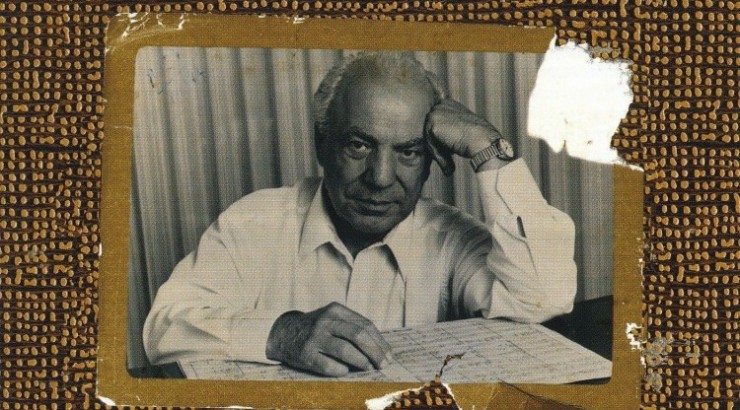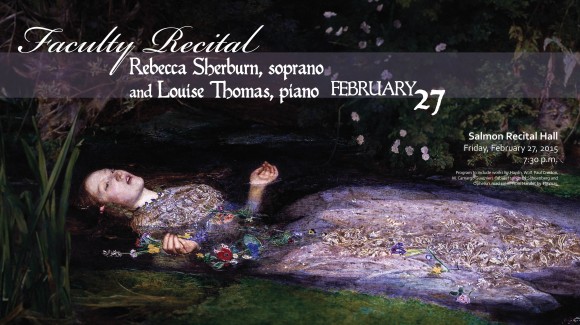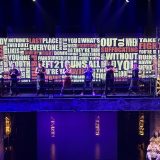
New Life for a Classic
February 1, 2015
Run an internet search for “Paul Creston” and you’ll find thousands of entries for the self-taught American composer whose body of work was one of the most performed and most influential in the mid-twentieth century, a time when classical music enjoyed widespread popularity in the United States. Paul Creston was a New York City native whose parents immigrated to the United States from Sicily. Born in 1906, he began his musical training with piano and organ lessons as a child. But beyond that, his study of theory, composition, literature and philosophy was all self-directed and done so while working to support his struggling family.
His most prolific period as a composer spanned 33 years, from 1934 to 1967, and resulted in over 120 works. According to various biographies, his music covered virtually every musical genre of his time, except opera. He also produced dozens of scores for radio and television. During these years, he also served as organist for
St. Malachy’s – the Actors’ Chapel
, and like many great composers before him, Creston’s spirituality deeply influenced his writing.
A master of both vocal and instrumental media, Creston’s style is described as conservative with a strong rhythmic element, which, some would say was influenced by his observations of the performances of his wife Louise Gotto, a Martha Graham dancer. Creston received wide acclaim for his orchestral and other instrumental works, many of which are now considered standards in wind band performances, and are often used for music competitions across the United States.
Much of Creston’s work, especially his songs, gradually fell out favor over time, and publishing rights were not renewed, or publishers that had printed and distributed his music went out of business, making his music harder and harder to find.
Chapman University’s Director of Vocal Studies and accomplished soprano,
Dr. Rebecca Sherburn
recently released her classical audio CD
Paul Creston: Songs
(released July 01, 2014; ℗ 2014 Albany Records; available on Amazon and iTunes). A Creston enthusiast, Sherburn remarks, “Some of the Creston songs I sang on my CD are unpublished, which means that they are not readily available for today’s musicians to perform.” She goes on to explain, “He was such an influential composer – it is a real shame that more of his work is unknown to many of today’s musicians.”
Although Creston passed away in 1985, there is movement afoot towards making his music more accessible to musicians and vocalists. In partnership with Chapman’s Professor Emeritus
Dr. Thomas G. Hall
, and musicologist
Dr. Sarah Tyrrell
, Sherburn is working hard to ensure that more of Creston’s songs are published. “Dr. Hall has experience in music transcription and publishing, as well as getting older historical works re-released; and Dr. Tyrrell wrote the liner notes for my Creston CD.” Creston is survived by two sons, who hold the rights to a lot of his music and, Sherburn explains, they are anxious to have his works re-released.
“There are always pieces that a composer doesn’t finish or choses to copyright but not publish,” Sherburn says. “Most of his [Creston’s] music can be found in libraries, but a lot of it can’t be purchased any longer. The larger works for orchestra can be rented; however, his vocal music is simply no longer in print and cannot even be purchased today.” Two of the recordings on Sherburn’s album,
My Love for You
and
It’s So Fantastic
, are unpublished Creston songs.
Since 2015 marks the 30th anniversary of Creston’s death, Sherburn has chosen to honor the composer by including some of his works in her recital on February 27, 2015. Accompanied by
Dr. Louise Thomas
on piano, the performance begins at 7:30 p.m. in Salmon Recital Hall. The program will also cover works by Haydn, Wolf, M. Camargo Guarnieri, Cabaret songs by Schoenberg, and Ophelia’s mad scene from
Hamlet
by Thomas. Several copies of Sherburn’s new CD,
Paul Creston: Songs
will be awarded in a random drawing from the audience.
Tickets for the recital are $10 for general admission; $5 for senior citizens, alumni and non-Chapman students. For more information or to order tickets, visit
chapman.edu/tickets
.


